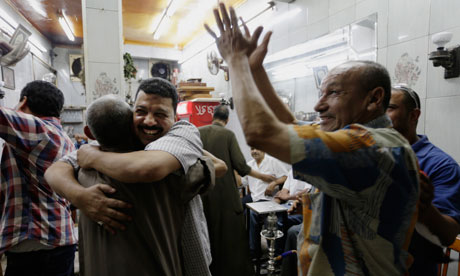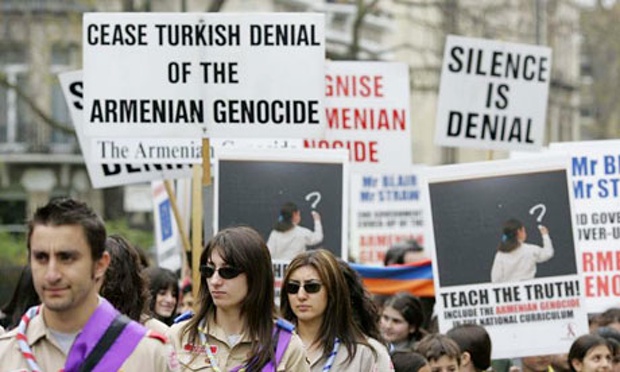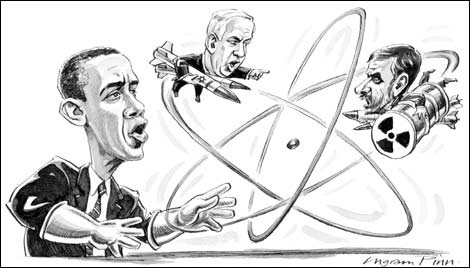The fall of Egyptian President Mohammed Morsi and the appointment of an interim leader by the military provides an opportunity to contemplate what exactly went wrong in Egypt’s revolution and what the future holds for the country. In terms of finding the roots of Morsi’s decline, the writing had been on the wall for quite some time.
Egyptians have been rising up against Morsi since February of this year and several authoritarian moves in recent months have both prompted and worsened the crisis. Morsi was preparing to enter into the tumultuous sectarian violence in Syria, on the side of anti-Assad Sunnis, and was also trying to push forth an Islamist constitution that rescinded many civil liberties, particularly for religious minorities, children, and women. This comes in the wake of a dramatic increase in sexual violence in post-revolutionary Egypt, where an appalling 99.3 percent of Egyptian women reported some form of sexual assault under Islamist rule. In what was arguably his most undemocratic move, Morsi pushed through a new Egyptian constitution despite accusations that the referendum approving it had been doctored. Finally, Egypt is in the midst of its worst economic crisis since the 1930s with almost fifty percent of the population living in poverty. Such conditions are ripe for political upheaval and it is therefore unsurprising that Egyptians took to the streets to protest the Muslim Brotherhood.
[captionpix align=”right” theme=”elegant” width=”300″ imgsrc=”http://i.telegraph.co.uk/multimedia/archive/02606/egypt-protest-sisi_2606953b.jpg” captiontext=”Egyptian Army chief Abdel Fattah al-Sisi”]
Following weeks of protests, the Egyptian military, backed by a large civilian contingent, issued an ultimatum to Morsi stipulating that he either share power with opposition parties or face ejection from office. After Morsi refused, he was deposed by the military and is now in military custody.
The Egyptian military has pledged to lead the country through a democratic transition and has created a “road map” which focuses on meaningful democratic processes and participation. However, the dangers of a military takeover are manifold. Although the military has asserted that they will remain in power only for a short political transition and constitutional review, history demonstrates that such transitions are rarely short. Morsi was Egypt’s first ever democratically elected leader, as Gamal Abdel Nasser’s 1952 military coup established a one-party state, which persisted until the 2011 revolutions.
In the Egyptian case, the term “political transition” is particularly subjective. When will the transition be considered “complete”? While free and fair elections do not constitute a democracy, they are certainly an important step in that direction. However, the Egyptian people have risen up against a democratically elected leader, making the transition far more complex and the road to meaningful democracy rocky at best.
There is also the distinct possibility that the Egyptian military will be reluctant to relinquish control, even if a new leader is democratically elected. Given that the military is charged with maintaining order and Egypt has remained tumultuous despite democratically electing a leader, there would be justifiable cause for the military to maintain greater control of a democratic transition the second time around. The interim leader, Chief Justice of Egypt’s Supreme Constitutional Court Adli Mansour, was sworn in on July 4, 2013 but it remains to be seen if he will have any significant control over the country. There is also reason to believe that he is simply a stand in for the military. Mansour lacks a strong political leaning, experience as a political leader, and is not a public figure in Egypt. These qualities made Mansour a good candidate for Chief Justice but also make him an ideal blank canvas for the military administration to exert their influence through a figurehead.
While the Egyptian military has expressed their desire to usher in democracy, recent events offer an alarming contrast. A statement titled “The Final Hours” that was released by military chiefs before Morsi was deposed asserted their willingness to “shed blood against terrorists and fools.” Such actions, while less extreme, call to mind Argentina’s Dirty War, in which the military junta cracked down on left-wing activists and dissidents and justified it as necessary force against “subversive terrorists.” This is particularly true when considered in light of recent violence associated with the military. On July 5, the military opened fire on thousands of pro-Morsi protesters, killing 3 people and injuring 69 others, and on July 8, the military opened fire again on Morsi supporters participating in a peaceful sit-in, killing 51 people and injuring more than 300 others. The military has denied responsibility for the July 8 incident and blamed an unnamed “terrorist group.” These actions have no place in a democratic society and Morsi supporters should have equal rights to express their views through peaceful protest as Morsi critics.
The military has also placed a travel ban on senior members of the Muslim Brotherhood and banned several media outlets covering pro-Morsi demostrations. While the Muslim Brotherhood policies have caused uproar in the country, true democracy demands an equal voice for all political parties. Since Morsi has yet to be charged with any crimes, keeping him under armed guard at the Defense Ministry seems like an attempt to dissolve the Muslim Brotherhood leadership, and in doing so, stifle its support. It is also clear from the recent arrests of Muslim Brotherhood members that the military has a particular agenda of ridding Egypt of the Muslim Brotherhood. As a result, supporters of the Brotherhood will likely continue to face repression. These actions on the part of the army indicate some of the dangers of military control in Egypt. The willingness with which the army has resorted to violence paints a distressing picture of what the country could be like under military rule.
The current political climate in Egypt is clearly contentious, and international forces are waiting for the outcome of the military takeover. U.S. President Barack Obama, formerly a Morsi supporter, has carefully avoided the use of the term “coup” to describe Egypt’s military takeover. In contrast, Canadian Minister of Foreign Affairs John Baird issued a statement entitled “Canada Calls for Calm after Egyptian Coup.” The Egyptian constitution has been suspended, the former leader imprisoned, and pro-Morsi media have been shut down. Many have already begun questioning the legitimacy of the takeover. Jonathan Steele warned “those who believe that the military’s main objective is to preserve the new freedoms will soon be disappointed. From Chile in 1973 to Pakistan in 1999[…] long is the history of military takeovers that were welcomed in their first hours and days but regretted in the years of despair that followed.” Egypt has a key strategic importance in the Middle East, particularly due to its 1979 Peace Treaty with Israel. For these reasons, the outcome of the political crisis in Egypt has profound implications for peace and security in the turbulent region.




